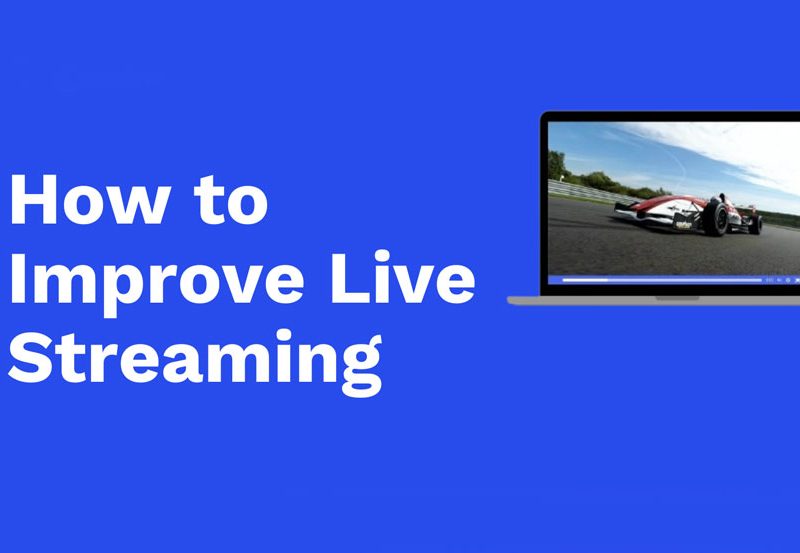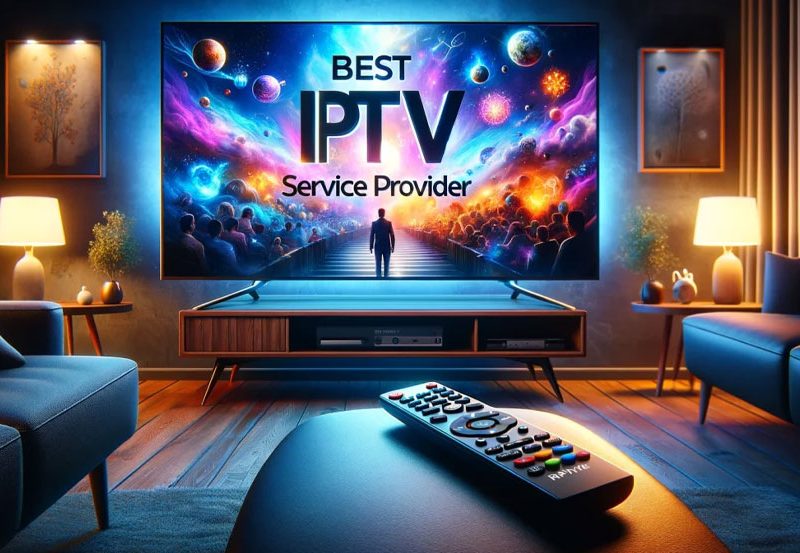Enhancing IPTV streaming quality involves several key factors. A reliable, high-speed internet connection is essential for smooth, uninterrupted streaming. Wired connections are generally more stable and experience less interference than Wi-Fi, making them preferable for IPTV streaming.
Investing in a high-quality IPTV box or device can significantly impact the streaming experience. Devices that support high-definition video and audio formats, with sufficient processing power to handle IPTV streaming demands, are recommended. Optimizing the home network can also improve IPTV streaming quality.
Placing the router in a central location, away from potential interference sources, is advisable. Using a router with advanced features like Quality of Service (QoS) can help prioritize IPTV traffic and ensure smoother streaming. By addressing these factors – internet connection quality, IPTV device capabilities, and network optimization – users can achieve a higher quality IPTV streaming experience.
Key Takeaways
- Use a high-speed internet connection to enhance your IPTV streaming quality
- Common IPTV problems include buffering, freezing, and audio/video sync issues
- Troubleshoot IPTV subscriptions by checking for software updates and contacting your provider
- Improve IPTV buffering by reducing the number of devices connected to your network and using an Ethernet connection
- Resolve IPTV channel freezing by restarting your device and checking for signal interference
- Fix IPTV audio and video sync issues by adjusting the audio settings on your device
- Deal with IPTV playback errors by clearing the cache and restarting the app or device
Common IPTV Problems
Buffering and Playback Issues
Buffering is a frequent problem faced by IPTV users, where the video stream takes time to load or play, resulting in interruptions and a poor viewing experience. Playback errors, such as “stream not available” or “content not loading,” can also hinder the IPTV viewing experience.
Channel Freezing and Audio/Video Sync Issues
Channel freezing is another common problem with IPTV, where the video stream suddenly stops or becomes unresponsive. This can be frustrating, especially when trying to watch live TV or sports events. Additionally, audio and video sync issues can occur, causing the audio and video to be out of alignment, leading to a disjointed viewing experience.
Addressing IPTV Problems for a Seamless Experience
It’s essential to address these common IPTV problems to enjoy a seamless and uninterrupted streaming experience. By understanding the root causes of these issues and implementing troubleshooting techniques, users can overcome these challenges and make the most of their IPTV subscriptions.
Troubleshooting IPTV Subscriptions
When facing issues with your IPTV subscription, it’s important to troubleshoot the problem in order to identify and resolve the underlying issues. One common troubleshooting step is to check the status of your internet connection. A stable and high-speed internet connection is essential for smooth IPTV streaming.
If you’re experiencing buffering or playback errors, it’s worth checking your internet speed and ensuring that it meets the minimum requirements for IPTV streaming. Another troubleshooting step is to restart your IPTV box or device. Sometimes, simply restarting the device can resolve temporary glitches or software issues that may be causing problems with your IPTV subscription.
Additionally, checking for software updates and ensuring that your IPTV app or device firmware is up to date can also help resolve compatibility issues and improve overall performance. If you’re still experiencing issues with your IPTV subscription, it may be worth reaching out to your service provider for assistance. They may be able to provide specific troubleshooting steps or offer insights into any known issues affecting their service.
By actively troubleshooting your IPTV subscription, you can identify and address any underlying issues that may be impacting your streaming experience.
Improving IPTV Buffering
Buffering is a common issue that can hinder the IPTV viewing experience. Fortunately, there are several ways to improve buffering and enjoy smoother streaming. One effective way to improve buffering is by optimizing your home network.
This can be done by minimizing the number of devices connected to your network while streaming IPTV, as well as ensuring that your router is placed in a central location for better coverage. Another way to improve buffering is by using a wired internet connection instead of Wi-Fi. Wired connections tend to be more stable and have less interference compared to wireless connections, which can help reduce buffering and improve overall streaming quality.
Additionally, upgrading your internet plan to a higher speed tier can also help alleviate buffering issues by providing more bandwidth for streaming. Furthermore, using a VPN (Virtual Private Network) can also help improve buffering by reducing network congestion and optimizing data routing for smoother streaming. By implementing these strategies, users can effectively improve buffering and enjoy a more seamless IPTV streaming experience.
Resolving IPTV Channel Freezing
Channel freezing is another common issue that can disrupt the IPTV viewing experience. To resolve channel freezing, it’s important to first check the status of your internet connection. A stable and high-speed internet connection is crucial for uninterrupted IPTV streaming.
If you’re experiencing channel freezing, it’s worth checking your internet speed and ensuring that it meets the minimum requirements for IPTV streaming. Another troubleshooting step is to restart your IPTV box or device. Sometimes, simply restarting the device can resolve temporary glitches or software issues that may be causing channel freezing.
Additionally, checking for software updates and ensuring that your IPTV app or device firmware is up to date can also help resolve compatibility issues and improve overall performance. If channel freezing persists, it may be worth reaching out to your service provider for assistance. They may be able to provide specific troubleshooting steps or offer insights into any known issues affecting their service.
By actively troubleshooting channel freezing issues, users can identify and address any underlying issues that may be impacting their IPTV viewing experience.
Fixing IPTV Audio and Video Sync Issues
Audio and video sync issues can be frustrating when watching IPTV content. To fix these issues, it’s essential to follow a series of troubleshooting steps to identify and resolve the problem.
Check Device Settings
First, check the settings on your IPTV box or device. Some devices may have options to manually adjust audio and video synchronization settings, allowing users to fine-tune the alignment between audio and video.
Restart and Update
Another troubleshooting step is to restart the IPTV app or device. Sometimes, simply restarting the app or device can resolve temporary glitches or software issues that may be causing audio and video sync problems. Additionally, checking for software updates and ensuring that your IPTV app or device firmware is up to date can also help resolve compatibility issues and improve overall performance.
Seek Assistance from Your Service Provider
If audio and video sync issues persist, it may be worth reaching out to your service provider for assistance. They may be able to provide specific troubleshooting steps or offer insights into any known issues affecting their service. By actively troubleshooting audio and video sync problems, users can identify and address any underlying issues that may be impacting their IPTV viewing experience.
Dealing with IPTV Playback Errors
Playback errors such as “stream not available” or “content not loading” can be frustrating when trying to access IPTV content. To deal with playback errors, it’s important to first check the status of your internet connection. A stable and high-speed internet connection is essential for smooth IPTV streaming.
If you’re experiencing playback errors, it’s worth checking your internet speed and ensuring that it meets the minimum requirements for IPTV streaming. Another troubleshooting step is to restart your IPTV box or device. Sometimes, simply restarting the device can resolve temporary glitches or software issues that may be causing playback errors.
Additionally, checking for software updates and ensuring that your IPTV app or device firmware is up to date can also help resolve compatibility issues and improve overall performance. If playback errors persist, it may be worth reaching out to your service provider for assistance. They may be able to provide specific troubleshooting steps or offer insights into any known issues affecting their service.
By actively troubleshooting playback errors, users can identify and address any underlying issues that may be impacting their IPTV viewing experience. In conclusion, while IPTV offers a convenient way to access a wide range of TV channels and on-demand content, it’s important to address common problems such as buffering, channel freezing, audio and video sync issues, and playback errors in order to enjoy a seamless and uninterrupted streaming experience. By understanding the root causes of these issues and implementing troubleshooting techniques, users can overcome these challenges and make the most of their IPTV subscriptions.
If you’re looking for more information on common IPTV problems and how to fix them, you may want to check out this article on Premium IPTV Service. This article provides valuable insights and solutions to some of the most common issues that IPTV users encounter, helping you to get the most out of your IPTV experience.




